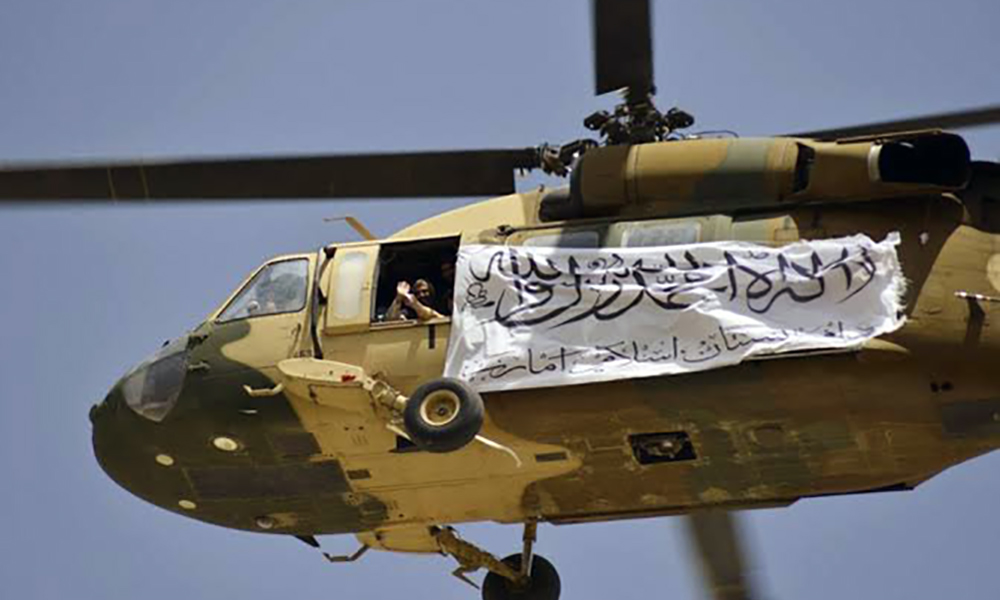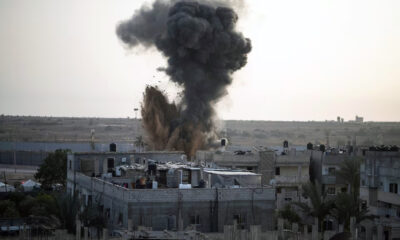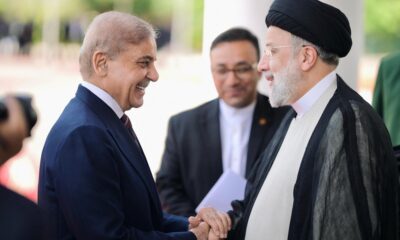Latest News
Reflections of a year in power, since take over by IEA

Exactly one year ago today, August 15, 2021, the Islamic Emirate of Afghanistan (IEA) regained control of the country after a 20 year war. In this time they have had enormous challenges to deal with.
The past year has been full of political ups and downs, with many calls being made for a more inclusive government.
“The Islamic Emirate of Afghanistan took control of the country last year while a puppet system collapsed and the Islamic Emirate took control of affairs suddenly and immediately. IEA moved the affairs of the country forward. Alhamdulillah, despite all the sanctions and problems, we have achieved a lot,” said Inamullah Samangani, the head of GMIC.
With the establishment of the Islamic Emirate in the country, many political leaders, leading officials of the previous government, parliament members, human rights defenders, journalists and some civil rights activists left the country and sought refuge outside of Afghanistan. But the leader of the Islamic Emirate issued a general amnesty order to control the situation.
Four months into the rule of the Islamic Emirate in the country, the new government was still in political and economic isolation, and with each passing day, international pressure and sanctions against the Islamic Emirate increased.
After four months, Acting Minister of Foreign Affairs Amir Khan Muttaqi traveled to Iran for the first time to meet with Iranian officials. He met with Mohammad Ismail Khan, a former jihadi leader, and Ahmad Massoud, the leader of the so-called National Resistance Front.
Muttaqi wanted them to return to the country.
Nine months after taking power, a commission was formed to entice Afghan refugees abroad to return home.
This commission was based on an order issued by the supreme leader of the Islamic Emirate, Haibatullah Akhundzada.
Since it’s inception, a number of prominent figures have returned home.
In the past year, the failure to form an inclusive government, the imposition of restrictions on women and girls, and the violation of human rights has however led to strong criticism by the foreign community against the Islamic Emirate.
Some refugees have said these issues are preventing them from returning home.
After ten months of being in power, the IEA held a mass gathering of Ulema. There were about 3,000 scholars in attendance.
In a rare trip to Kabul, Mullah Haibatullah Akhundzada delivered a speech.
He emphasized that the IEA is ready to interact with the world, but Islamic laws are a red line for them.
In the past year, the Islamic Emirate repeatedly criticized foreign interference in Afghanistan’s internal affairs and asked the countries of the region and the world to stop meddling in the country’s internal affairs.
The Ministry of Foreign Affairs of Afghanistan also says that the new government of Afghanistan is now independent and other governments should not interfere in Afghanistan’s affairs.
However, one year later, the new government of Afghanistan has still not been recognized and so far it has not been able to take up its official position at the United Nations.
Latest News
Afghanistan now a ‘nexus for diplomatic endeavors’, says IEA

In the wake of dozens of meetings between high-ranking Islamic Emirate officials and visiting officials from foreign countries, and other diplomatic advances, the IEA said on Thursday that in the current geopolitical landscape, Kabul now “serves as a nexus for diplomatic endeavors and political deliberations pertaining to global affairs”.
In a series of posts on X, the IEA’s spokesman Zabihullah Mujahid said diplomatic missions and political delegations from various nations, including Russia, Malaysia, Kazakhstan, Turkmenistan, the European Union, and others, “are evident in the capital, highlighting its strategic importance in fostering Islamic cooperation”.
He said: “Recently, the honorable Minister of Transport of the Islamic Emirate, Mr. Hamidullah Akhundzada, led a significant delegation to Termez, Uzbekistan, for essential discussions aimed at enhancing bilateral relations.
“These discussions encompass a wide range of topics, from trade facilitation to security assurances, indicating a focused effort by the Islamic Emirate to strengthen and broaden its international engagements, thereby ensuring sustained development and stability.
“These initiatives, characterized by diligence and effectiveness, underscore Afghanistan’s enduring commitment to diplomatic engagement and its pivotal role in regional and global affairs,” he said.
Mujahid added that these initiatives “also emphasize the vital connection between diplomatic efforts and economic prosperity, promising favorable outcomes for Afghanistan’s socio-economic landscape.”
He pointed out that despite ongoing challenges, Afghanistan “remains steadfast in its pursuit of prosperity and resilience, defying pessimistic projections and charting a course towards political and economic renewal.”
He said: “Continued efforts are essential to fostering inclusive growth and impactful initiatives, thus advancing Afghanistan’s journey towards sustainable development and increased influence on the global stage.”
Latest News
Mullah Baradar discusses creation of railway with Kazakh deputy PM

Mullah Abdul Ghani Baradar, deputy prime minister for economic affairs has met with Erik Zhumangarin, the Deputy Prime Minister of Kazakhstan, and discussed the establishment of a railway network from Kazakhstan to Pakistan through Turkmenistan and Afghanistan, the deputy PM’s office said in a statement.
During the meeting, Baradar emphasized the need to sign agreements to solve the banking problems of traders from both countries, the creation of Afghan-Kazakh joint companies, and the facilitation of visas for Afghan traders.
According to the statement, the Deputy Prime Minister of Kazakhstan said that the Kazakh government intends to establish a joint chamber of industry and commerce and a joint trade and labor group between the two countries, and is ready to cooperate with Afghanistan in the sectors of e-governance, industry, higher education, education, health, and banking.
Latest News
Iran, Pakistan leaders raise concerns over ‘terrorist groups’ in Afghanistan

Following a two-day official visit to Pakistan, Iranian President Ebrahim Raisi and Pakistan’s Prime Minister Shehbaz Sharif issued a joint statement emphasizing the need to further expand commercial and economic cooperation and transform the common border of the two countries from a “border of peace” to “border of prosperity”.
The two leaders also strongly condemned aggressions and crimes of Israel in Gaza, and demanded an immediate and unconditional ceasefire, as well as unimpeded humanitarian access to the besieged people of Gaza.
Numerous other issues were also discussed but on the topic of Afghanistan, they jointly declared their commitment to the development of Afghanistan as a peaceful, united, independent country free from the threats of terrorism and drug trafficking.
According to the statement the two countries pointed out that the existence of terrorist organizations in Afghanistan is a serious threat to the security of the region and the world.
The two sides stressed their desire to strengthen cooperation in the field of fighting terrorism and ensuring security and creating a united front against terrorism.
They also discussed the importance of coordinating regional and international efforts to ensure security and stability in the region.
“While respecting the sovereignty and territorial integrity of Afghanistan, the two sides recognized that increasing participation of all strata of Afghans in basic decision-making will lead to the strengthening of peace and stability in this country,” the statement read.
-

 Sport5 days ago
Sport5 days agoAfghanistan Champions League kicks off with grand opening ceremony
-

 Latest News4 days ago
Latest News4 days agoPakistan’s frontiers minister stresses ‘dignified’ return of Afghan refugees
-

 Latest News5 days ago
Latest News5 days agoMore than 800 Afghan refugees deported from Pakistan in two days
-

 Regional3 days ago
Regional3 days agoIranian president lands in Pakistan for three-day visit to mend ties
-

 Climate Change4 days ago
Climate Change4 days agoMassive river flooding expected in China, threatening millions
-

 Latest News4 days ago
Latest News4 days agoChinese keen to invest in Panjshir-Kabul water conduit project
-

 World4 days ago
World4 days agoTwo Japan navy helicopters crash, one body found, 7 missing
-

 Latest News2 days ago
Latest News2 days agoRashid Khan named AWCC’s brand ambassador
























